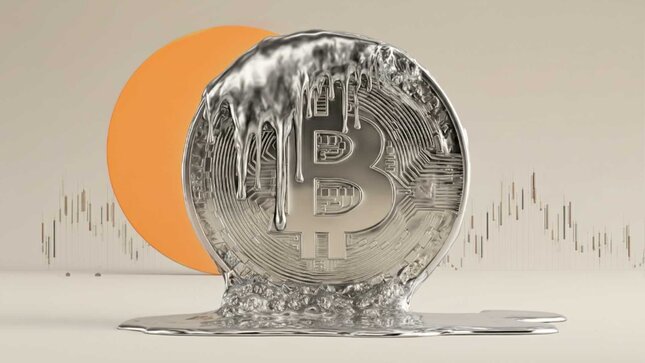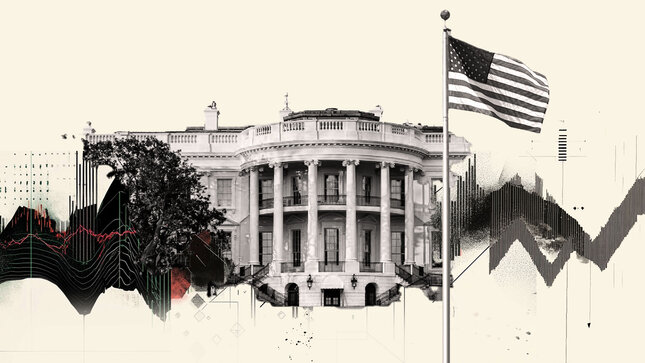When the trading path is painful, you listen to your frustration and pain.
And what you're hearing is your psychology, patience, and discipline are off. But fixing those does what?
You make fewer errors? Fewer impulsive trades? Does that really fix the problem?
You reduce your size or even move to SIM, getting the mental inferno under control.
And then what happens?
Without the pain of losses decimating your account, your consistency hasn't improved.
The smouldering keeps on, and you're at your wit's end. Sound familiar?
Keep reading for a new perspective and approach to trading that puts your trading psychology on cruise control.
The path outlined above is nearly identical for everyone who gets into trading...
Including those who go on to have rewarding and self-fulfilling trading careers.
But here's the thing
Roger Federer only won 54% of his points. Like tennis, trading is not a game of perfection.
So while it feels like your psychology is the issue, great trading is often riddled with human mistakes.
Consistent profitability is achieved despite these errors.
Psychology is crucial in trading. But the real game lies in understanding others' minds—not your own.
As the most successful trader of our time, Jim Simons famously said:
"We don't want to predict price, but we want to predict when other market participants are going to do something."
I'll show you what it looks like using real trading in a minute:
But first: What's intriguing about focusing on the minds of everyone else?
Not only is it vital in reaching consistent profitability...
It also profoundly shifts what's going on in your mind.
Let me explain
This new focus on others requires your full attention.
It's not different from the focus of a surgeon, race car driver, or musician performing.
And this full attention uses all your mental RAM (to use a computing analogy).
Ask yourself
-
During a race, is a driver thinking about breakfast?
-
Is a surgeon worried about traffic during surgery?
-
Is a pianist thinking about the weather during a solo?
No! Right?
Because they're all 100% engaged in what they're doing at that moment.
And it's the same when you're focusing on the minds of others in the market.
It requires your 100% mental engagement.
Shifting your focus to others transforms your trading and puts your trading psychology on cruise control.
Mentally, you don't have space for sabotaging thoughts which can undermine your trading.
I know this sounds incredible.
Solving two issues in one: achieving consistent profitability and solving what you thought were struggles with your trading psychology:
First, adopt a new way to trade.
But before you get stuck—not wanting to change due to a sudden case of a sunk-cost fallacy—consider this:
Even though no one I've worked with to reinvent their trading knew any of the material, concepts, and skills I share...
I only work with people with years of trading experience.
Any guesses as to the reason why?
As painful as it is, experiencing the full gamut of trading emotions provides the much-needed context to learn how others think and act.
To quote Ray Dalio: "I believe anyone who has made money in trading has had to experience horrendous pain at some point. "
Now, watch this play out in real trading: Two examples follow of how understanding others' minds transforms your trading.
Now see real trading
Now see real trading
Forex and derivatives trading is a highly competitive and often extremely fast-paced environment. It only rewards individuals who attain the required level of skill and expertise to compete. Past performance is not indicative of future results. There is a substantial risk of loss to unskilled and inexperienced players. The high degree of leverage can work against you as well as for you. Before deciding to trade any such leveraged products you should carefully consider your investment objectives, level of experience, and risk appetite. The possibility exists that you could sustain a loss of some or all of your initial investment and therefore you should not invest money that you cannot afford to lose. You should be aware of all the risks associated with trading on margin, and seek advice from an independent
Editors’ Picks

EUR/USD: Yes, the US economy is resilient – No, that won’t save the US Dollar Premium
Some impressive US data should have resulted in a much stronger USD. Well, it didn’t happen. The EUR/USD pair closed a third consecutive week little changed, a handful of pips above the 1.1800 mark.

Gold: Metals remain vulnerable to broad market mood Premium
Gold (XAU/USD) started the week on a bullish note and climbed above $5,000 before declining sharply and erasing its weekly gains on Thursday, only to recover heading into the weekend.

GBP/USD: Pound Sterling remains below 1.3700 ahead of UK inflation test Premium
The Pound Sterling (GBP) failed to resist at higher levels against the US Dollar (USD), but buyers held their ground amid a US data-busy blockbuster week.

Bitcoin: BTC bears aren’t done yet
Bitcoin (BTC) price slips below $67,000 at the time of writing on Friday, remaining under pressure and extending losses of nearly 5% so far this week.

US Dollar: Big in Japan Premium
The US Dollar (USD) resumed its yearly downtrend this week, slipping back to two-week troughs just to bounce back a tad in the second half of the week.
RECOMMENDED LESSONS
Making money in forex is easy if you know how the bankers trade!
I’m often mystified in my educational forex articles why so many traders struggle to make consistent money out of forex trading. The answer has more to do with what they don’t know than what they do know. After working in investment banks for 20 years many of which were as a Chief trader its second knowledge how to extract cash out of the market.
5 Forex News Events You Need To Know
In the fast moving world of currency markets where huge moves can seemingly come from nowhere, it is extremely important for new traders to learn about the various economic indicators and forex news events and releases that shape the markets. Indeed, quickly getting a handle on which data to look out for, what it means, and how to trade it can see new traders quickly become far more profitable and sets up the road to long term success.
Top 10 Chart Patterns Every Trader Should Know
Chart patterns are one of the most effective trading tools for a trader. They are pure price-action, and form on the basis of underlying buying and selling pressure. Chart patterns have a proven track-record, and traders use them to identify continuation or reversal signals, to open positions and identify price targets.
7 Ways to Avoid Forex Scams
The forex industry is recently seeing more and more scams. Here are 7 ways to avoid losing your money in such scams: Forex scams are becoming frequent. Michael Greenberg reports on luxurious expenses, including a submarine bought from the money taken from forex traders. Here’s another report of a forex fraud. So, how can we avoid falling in such forex scams?
What Are the 10 Fatal Mistakes Traders Make
Trading is exciting. Trading is hard. Trading is extremely hard. Some say that it takes more than 10,000 hours to master. Others believe that trading is the way to quick riches. They might be both wrong. What is important to know that no matter how experienced you are, mistakes will be part of the trading process.
The challenge: Timing the market and trader psychology
Successful trading often comes down to timing – entering and exiting trades at the right moments. Yet timing the market is notoriously difficult, largely because human psychology can derail even the best plans. Two powerful emotions in particular – fear and greed – tend to drive trading decisions off course.


